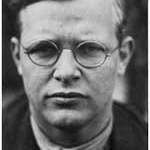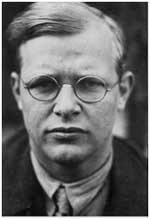
Deprecated: trim(): Passing null to parameter #1 ($string) of type string is deprecated in /home/aoiusa/public_html/wp-content/plugins/sexybookmarks/public.php on line 388
Deprecated: trim(): Passing null to parameter #1 ($string) of type string is deprecated in /home/aoiusa/public_html/wp-content/plugins/sexybookmarks/public.php on line 394
Deprecated: trim(): Passing null to parameter #1 ($string) of type string is deprecated in /home/aoiusa/public_html/wp-content/plugins/sexybookmarks/public.php on line 400
When I attended seminary over 20 years ago, one of my favorite activities was the inter-seminary dialogues. Once a month about seven or eight of us would drive down to Jewish Theological Seminary in Manhattan to meet up with Jewish rabbinical students and seminarians from Union Theological Seminary (Protestant) and St. Joseph’s (Catholic).
You’d think the gathering would spark some lively and substantive debate, but the truth was the contest wasn’t even close. From the very first meeting the Jews and Orthodox left the Protestants and Catholics in the dust.
The participants from Union were caught in the worst sort of theological relativism, so much so that they were uncertain even of first principles. We just got tired of waiting for them to build up enough self-assurance to craft a coherent argument. The Catholics were reeling from the exposure of the sex-abuse scandals that were coming to light at the time and retreated into an obscure Marian piety that we Orthodox could somewhat understand, but was completely incomprehensible to the Protestants and Jews. Only the Orthodox and Jews had something to say.
The personal connection with Union Seminary and that Dietrich Bonhoeffer spent time there fifty years earlier and came to the same conclusions we did makes the essay below so interesting. I never knew Bonhoeffer spent any time at Union, but I know enough about his life and witness that his observations are worth pondering. His reflections foreshadowed the decline of mainline Protestantism that has come to pass in our day.
The author makes some political points some readers won’t like, but just overlook those. There is still a lot of value in the piece.

Source: World Net Daily | Elias Washington
[The Union students] talk a blue streak without the slightest substantive foundation and with no evidence of any criteria … They are unfamiliar with even the most basic questions. They become intoxicated with liberal and humanistic phrases, laugh at the fundamentalists, and yet basically are not even up to their level.
During this Thanksgiving holiday, I am reading a revelatory biography on one of my favorite theologians, Dietrich Bonhoeffer (d. April 9, 1945), who, like millions of his fellow German citizens, would become an involuntary victim of Hitler’s fascist government and Nazi genocide literally weeks before the death of Hitler, the fall of Berlin and the triumph of the Allied Powers on V-E Day (May 8). The book is titled, “Bonhoeffer: Pastor, Martyr, Prophet, Spy” (2010) by Eric Metaxas.
When Bonhoeffer came to America to do post-graduate studies in theology on a teaching fellowship at New York’s Union Theological Seminary from 1930-31, little did he realize that he was at Ground Zero of an epic war between liberals and fundamentalists, progressives and conservative Christians. Harry Emerson Fosdick’s Riverside Church – mere blocks from Union and built specially for him by John D. Rockefeller – was the most famous liberal preacher in America. On the other side, representing traditional faith and described as a fundamentalist, stood Dr. Walter Duncan Buchanan, pastor of Broadway Presbyterian Church, six blocks south of Union and built without this existential Faustian bargain with the devil (or Mr. Rockefeller’s money), thank you.
Bonhoeffer observed that Union was on the side of Fosdick, Rockefeller and Henry Luce, American publisher extraordinaire and founder of Time Magazine, who did a flattering article on Fosdick when Riverside opened in October 1930. Bonhoeffer noted, “In New York they preach about virtually everything; only one thing is not addressed, or is addressed so rarely that I have as yet been unable to hear it, namely, the gospel of Jesus Christ, the cross, sin and forgiveness, death and life.”
Bonhoeffer further wrote of the anti-theological mood at Union:
The theological atmosphere of the Union Theological Seminary is accelerating the process of the secularization of Christianity in America. Its criticism is directed essentially against the fundamentalists and to a certain extent also against the radical humanists in Chicago; it is healthy and necessary. But there is no sound basis on which one can rebuild after demolition. It is carried away with the general collapse.
Bonhoeffer realized what I call the “progressive revolution” had all but destroyed real Christianity. The American seminary was not up to his exacting German standards. (“There is no theology here,” Bonhoeffer would write to his superintendent, Max Diestel.) Yet there was a small ray of light that shone brightly through the black hole of liberalism. Metaxas wrote, “The one, notable exception, Bonhoeffer again observed, was in the ‘negro churches.’ If his year in New York had value, it was mainly because of his experiences in the ‘negro churches.'”
While in New York, Bonhoeffer developed a strong friendship with one of his classmates, a black man from Alabama named Albert Franklin “Frank” Fisher, a social worker at the progressive Abyssinian Baptist Church in Harlem headed by the irrepressible Dr. Adam Clayton Powell Sr. Since Bonhoeffer was weary of the cold, dead liberal sermons in places like Riverside Church, when Fisher invited him to a service at Abyssinian, he gladly attended.
On Bonhoeffer’s experiences in Harlem, Metaxas wrote, “For the first time Bonhoeffer saw the gospel preached and lived out in obedience to God’s commands. He was entirely captivated, and for the rest of his time in New York, he was there every Sunday to worship and to teach a Sunday school class of boys; he was active in a number of groups in the church. …”
It’s amazing how the more things change the more they stay the same. I recently read that professor Cornel West, perhaps the most famous and outspoken black Marxist theologian and progressive “intellectual” will soon leave Princeton for Union Theological Seminary.” I wonder what will professor West teach his impressionable, young students at Union? About the god of Fosdick, Rockefeller, Occupy Wall Street and the socialist media, or about the God of Abraham, Isaac and Jacob? Darwin or David? St. Marx or St. Matthew? St. Nietzsche (“God is dead”) or St. Paul (“I am crucified with Christ …”)?
Had Bonhoeffer remained in New York for another year, he would have witnessed voting patterns of black Americans tragically shift away from the Republican Party – the party of the abolitionists, of Abraham Lincoln, Henry Lloyd Garrison, Harriet Tubman and Frederick Douglass. It was the same party that freed their forefathers from 250 years of slavery to once again put on the slave chains in 1932 where black Americans under the influence of Dr. W.E.B. Dubois, the NAACP and thousands of black pastors like Powell who told their naïve flocks to vote for the Democratic Socialist Party and Franklin Delano Roosevelt’s “New Deal” programs. These were the same progressives who presently kept them segregated in racial concentration camps called ghettos in Harlem, Watts, Southside of Chicago, “Black Bottom” on the Eastside of Detroit and in neighborhoods in big cities and little towns across America in the 1930s – and in 2011.
It was exactly 80 years ago that Dietrich Bonhoeffer completed his teaching fellowship at Union and his unplanned work deconstructing Jim Crow racial segregation laws by openly worshiping with black people at Harlem’s Abyssinian Baptist church and left New York. Returning to Germany by late June 1931, he began actively plotting against Hitler and Nazism with other courageous Germans. Bonhoeffer would eventually sacrifice his liberty to become a prisoner first at Tegel military camp (“Cell 92,” April 1943) and later at Buchenwald (Feb. 1945) and Flossenbürg (April 1945) concentration camps, where he fulfilled his ultimate destiny as a sainted martyr who willing gave his life courageously fighting against Nazi tyranny and against the madness of Hitler’s Aryan supremacy.
Bonhoeffer transcended our defective human condition and demonstrated his enduring love of God, family and country by sacrificing his own personal safety and security playing a central part in two separate plots to kill Hitler (“Operation Valkyrie” and “Operation 7”) in exchange for Hitler’s merciless revenge, SS torture chambers and eventual martyrdom by hanging at the infamous Flossenbürg concentration camp on April 9, 1945. Why? Bonhoeffer answered in an equally transcendent manner – Silence in the face of evil is itself evil; God will not hold us guiltless. Not to speak is to speak. Not to act is to act.
